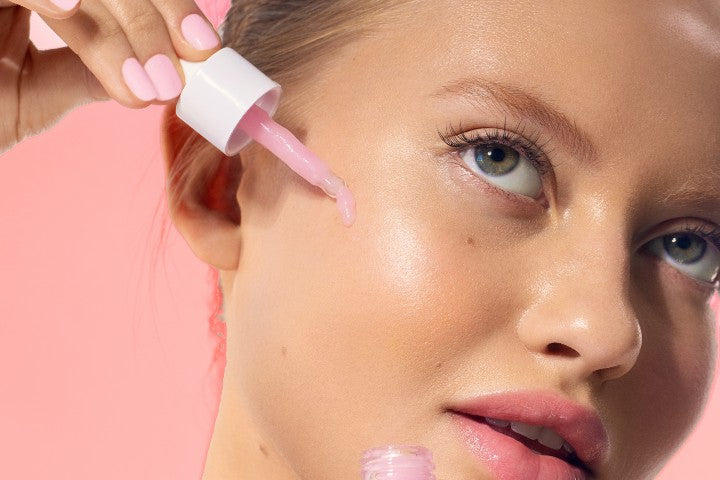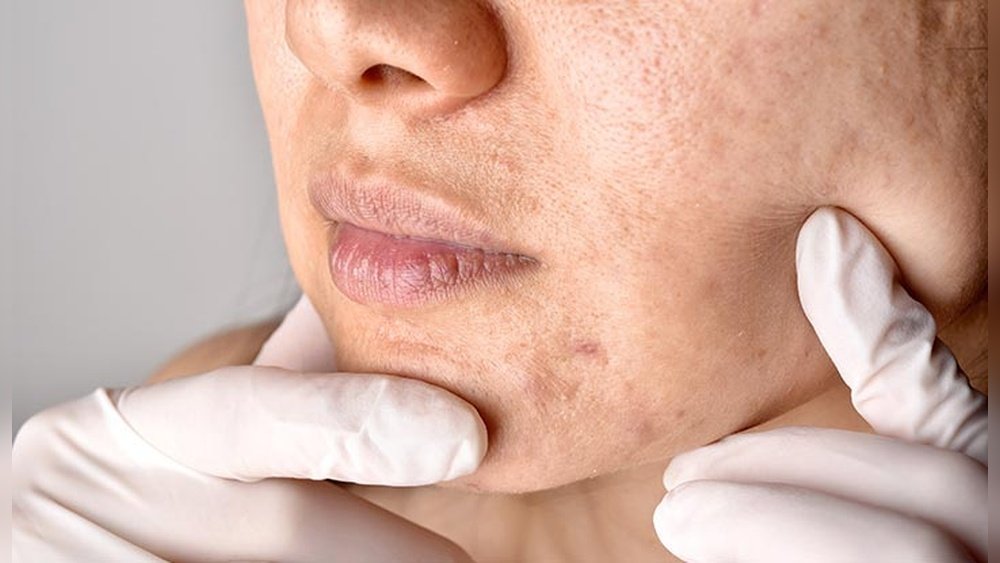Are you worried that using facial oils might clog your pores and cause breakouts? You’re not alone.
Many people hesitate to add oils to their skincare routine because they think oils automatically lead to clogged pores. But the truth is more surprising—and good news for your skin. Not all facial oils are created equal, and some can actually help balance your skin, keep it hydrated, and even reduce breakouts.
If you want to find out which oils are safe for your skin and how to use them without clogging pores, keep reading. This guide will clear up the confusion and help you make the best choice for your skin’s health.
How Facial Oils Interact With Skin
Facial oils interact with skin in different ways depending on their type and your skin’s needs. They can hydrate, protect, and balance the skin. Understanding this interaction helps decide if facial oils clog pores or not.
Some oils mimic the skin’s natural oils, blending easily without causing blockages. Others form a protective barrier on the skin, locking in moisture and nutrients. The effect on pores depends on how heavy or light the oil is and its comedogenic rating.
How Facial Oils Mimic Natural Skin Oils
Oils like jojoba closely resemble the skin’s own sebum. This similarity allows them to absorb quickly. They help regulate oil production and keep pores clear. These oils usually do not clog pores.
The Role Of Oil Weight And Absorption
Lightweight oils absorb fast and do not sit on the skin surface. Heavy oils may sit longer, increasing the risk of clogging pores. Quick absorption reduces the chance of breakouts and irritation.
Occlusive Effects Of Facial Oils
Some facial oils create a thin barrier on the skin. This barrier seals in moisture and ingredients applied earlier. While beneficial for hydration, thick barriers might trap dirt and bacteria if not cleansed properly.
Oily and acne-prone skin benefits from light, non-comedogenic oils. Dry or sensitive skin may need richer oils for extra nourishment. Matching the oil to skin type minimizes pore clogging risks.

Credit: www.100percentpure.com
Non-comedogenic Oils To Consider
Choosing the right facial oil is key to keeping your skin clear and healthy. Non-comedogenic oils do not clog pores. These oils help nourish the skin without causing breakouts. They absorb quickly and balance the skin’s natural oils. Here are some good options to try.
Lightweight And Fast-absorbing Options
Jojoba oil closely mimics your skin’s natural sebum. It absorbs fast and helps balance oil production. Grapeseed oil is very light and suits oily, normal, and sensitive skin. Hemp seed oil feels light on the skin and works for all skin types. These oils reduce shine without blocking pores.
Soothing And Nourishing Choices
Rosehip oil is rich in antioxidants and essential fatty acids. It calms inflammation and supports skin repair. Argan oil helps heal skin and rarely clogs pores. Sweet almond oil has anti-inflammatory properties and suits dry, sensitive skin. Marula oil hydrates deeply and nourishes without heaviness.
Common Misconceptions About Facial Oils
Facial oils often get a bad reputation for clogging pores. Many assume oils cause breakouts and skin problems. This common belief stops people from trying oils that could help their skin. Understanding the truth about facial oils clears up confusion.
Not all oils are the same. Some oils can clog pores, but many do not. It depends on the type of oil and your skin type. Oils can actually balance skin and reduce oiliness. Let’s explore the common misconceptions about facial oils.
Misconception: All Facial Oils Clog Pores
Many people think every oil blocks pores. This is false. Some oils are non-comedogenic. These oils do not clog pores or cause acne. Examples include jojoba oil, argan oil, and grapeseed oil. They absorb quickly and help balance skin oils.
Misconception: Oily Skin Should Avoid Facial Oils
Oily skin needs hydration too. Skipping oils may cause the skin to produce more oil. Lightweight oils can calm oily skin and reduce shine. Jojoba oil mimics natural skin oils and balances oil production. Using the right oil can improve oily skin’s health.
Misconception: Facial Oils Are Heavy And Greasy
Not all oils feel heavy on the skin. Many facial oils are light and absorb fast. Hemp seed oil and rosehip oil are good examples. They leave skin soft without a greasy finish. Choosing the right oil type matters for comfort and results.

Credit: rainbowbeauty.com
Choosing Oils Based On Skin Type
Choosing facial oils based on your skin type helps keep pores clear and skin healthy. Different oils suit different skin needs. Using the right oil can nourish the skin without causing breakouts. Understanding which oils work best prevents clogged pores and irritation.
Oily And Acne-prone Skin
Oily skin needs lightweight oils that do not block pores. Jojoba oil is a top choice because it mimics natural skin oils. Grapeseed oil is another good option; it absorbs quickly and balances oil production. Hemp seed oil is light and non-comedogenic, making it safe for acne-prone skin. Avoid heavy oils like coconut or palm oil, which can clog pores and worsen acne.
Dry And Sensitive Skin
Dry skin benefits from richer oils that lock in moisture. Rosehip oil is gentle and full of antioxidants, helping to soothe sensitive skin. Argan oil repairs and nourishes without clogging pores. Sweet almond oil calms inflammation and adds hydration. Marula oil is also excellent for dry, sensitive skin, providing soft, smooth results without irritation.
Avoiding Pore-clogging Oils
Avoiding pore-clogging oils is key to keeping skin clear and healthy. Some facial oils can block pores and cause breakouts. Choosing the right oils helps maintain smooth, glowing skin without irritation.
Not all oils are the same. Some are heavy and thick, which may clog pores. Others are light and absorb quickly, making them better for daily use. Knowing which oils to avoid and which to use is important for skin care.
Choosing Non-comedogenic Oils
Non-comedogenic oils do not block pores. Examples include jojoba oil, grapeseed oil, and hemp seed oil. These oils are light and absorb easily into the skin. They help balance oil production and keep pores clear.
Lightweight And Fast-absorbing Oils
Jojoba oil mimics natural skin oils and absorbs quickly. Grapeseed oil is great for oily and sensitive skin types. Hemp seed oil is light and suits all skin types without clogging pores. These oils provide moisture without heaviness.
Soothing And Skin-beneficial Oils
Rosehip oil is rich in antioxidants and helps calm skin. Argan oil supports skin repair and rarely clogs pores. Sweet almond oil reduces inflammation and nourishes dry skin. These oils soothe while protecting skin health.
Tips For Selecting The Right Oils
Look for oils labeled non-comedogenic to reduce pore blockages. Match oils to your skin type for best results. Oily skin benefits from light oils like jojoba and grapeseed. Dry skin does well with argan or sweet almond oils.

Credit: www.bareluxeskincare.com
Frequently Asked Questions
Is It Okay To Use Face Oil Every Day?
Yes, using face oil daily is safe and helps lock in moisture and nutrients. Choose non-comedogenic oils for your skin type to avoid clogged pores.
Which Face Oil Doesn’t Clog Pores?
Non-comedogenic face oils like jojoba, argan, grapeseed, rosehip, and hemp seed oil do not clog pores. They absorb quickly and balance skin oils. Avoid heavy oils like coconut and olive oil to prevent pore blockage. Choose lightweight oils suited for your skin type.
What Are The Disadvantages Of Facial Oil?
Facial oils can clog pores and cause breakouts, especially if they are heavy or comedogenic. Some oils may irritate sensitive skin. They can feel greasy and may not suit oily skin types. Overuse might lead to imbalance in natural oil production.
What Does A Clogged Oil Pore Look Like?
A clogged oil pore appears as a small, raised bump or blackhead. It may look swollen, red, or filled with white or dark debris.
Conclusion
Facial oils do not always clog pores. Choosing the right oil matters most. Lightweight oils like jojoba and grapeseed absorb quickly. They help balance skin without causing breakouts. Avoid heavy oils such as coconut or olive oil. Know your skin type before picking an oil.
Using suitable oils can improve skin health. Always check for non-comedogenic labels. Proper use keeps pores clear and skin glowing. Facial oils can be safe and beneficial with care.
 Skip to content
Skip to content 